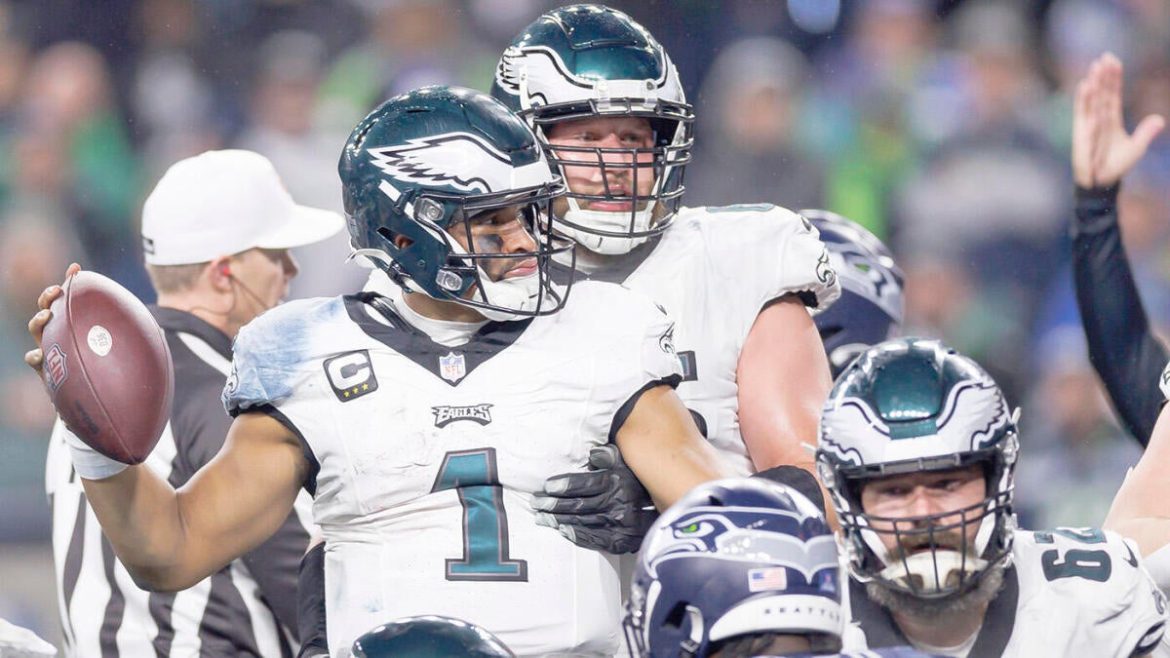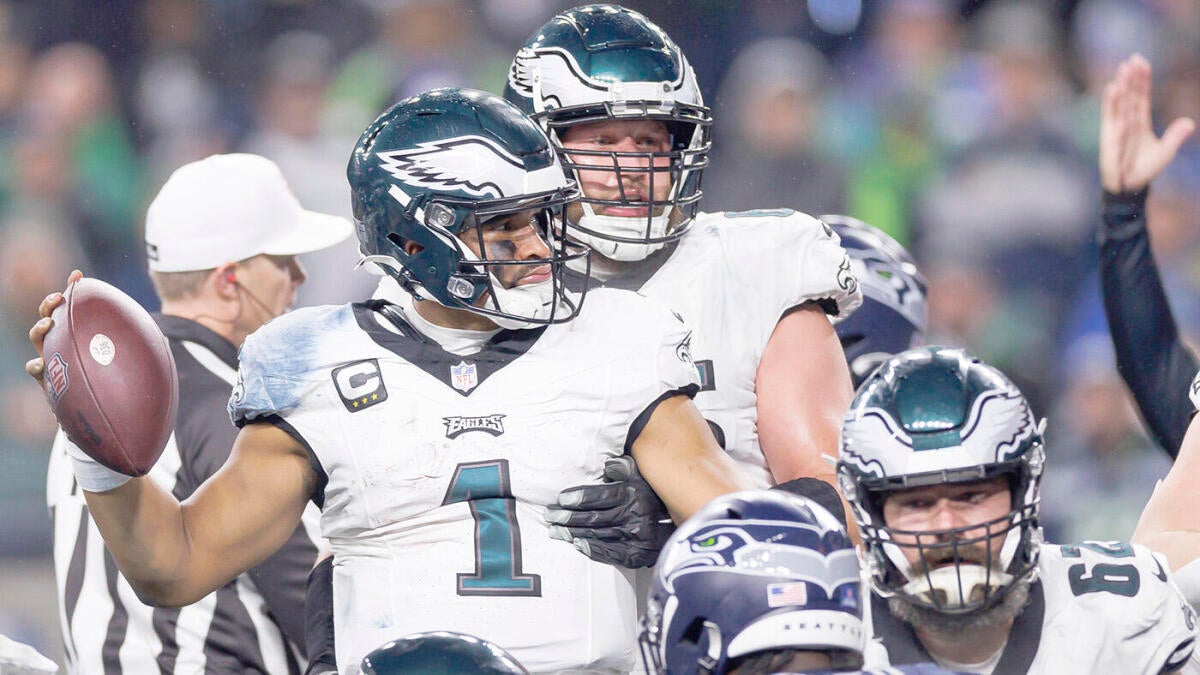The Tush Push Controversy: A Detailed Examination of Its Impact, Debate, and Saquon Barkley’s Role
Since becoming a defining feature in recent NFL strategy, the “tush push” — a quarterback sneak style play notably employed by the Philadelphia Eagles — has ignited fierce debate about fairness, tradition, and innovation in professional football. Its controversial stature not only affects game dynamics but also highlights the complex interplay between rules, player influence, and league governance. Central to the discourse is Saquon Barkley, the Eagles’ star running back, whose impassioned defense of the play and vocal stance on potential bans have added layers to the ongoing saga.
Origins and Mechanics of the Tush Push
The tush push, characterized by a group effort to push the quarterback forward during a sneak play, is an adaptation from rugby-style ball-carrying. The Eagles popularized it lately due to its near-automatic success in short-yardage situations, turning critical third and fourth downs into conversions and often swinging game outcomes. The play’s simplicity masked its effectiveness, which some teams struggled to counter, sparking calls for its ban.
The League’s Divided Vote: Keeping or Banning the Tush Push
Recently, NFL owners convened at the annual spring meetings to vote on whether to ban the tush push. Reports indicate the vote was narrowly split, with the ban proposal falling just two votes short of the necessary threshold. The final tally was close—22 votes against banning to 10 in favor, displaying clear divisions among teams.
Teams that rely heavily on the play, such as the Eagles and Buffalo Bills, championed keeping it, citing its strategic value and the challenge defenses face containing it effectively. Conversely, teams struggling defensively against the tush push or seeing it as circumventing traditional gameplay advocated for its ban, describing it as a “cheapo play” that detracts from pure athletic competition.
This outcome means the tush push will remain legal for the foreseeable future, maintaining its status as a signature tactic for the Eagles and a continuing challenge for opposing defenses.
Saquon Barkley’s Role and Reaction
Saquon Barkley stands as both a symbol and a vocal advocate in this debate. Since joining the Eagles, Barkley has been integral to the success of the tush push, often positioning himself as the primary pusher behind quarterback sneak attempts. His powerful running style and physicality amplify the play’s effectiveness.
Barkley’s public responses to critics have been candid and assertive. Rather than meekly accepting criticism or calls for the play’s ban, he fired back with a direct message: “If you don’t like it, get better at stopping it.” This statement underlines his confidence in the play’s legitimacy and challenges defenders to elevate their own game rather than seek regulatory changes.
His stance also reflects a broader athlete perspective—innovation and competitive advantage are core to sports, and attempts to stifle novel strategies may hinder the game’s evolution. Barkley’s defense aligns with head coach Nick Sirianni’s remarks, who argued the success comes from execution rather than the play being an automatic yardage gain.
Winners and Losers of the Tush Push Debate
The debate produced clear “winners” and “losers”:
– Winners:
– Philadelphia Eagles: The team most associated with the play, reinforcing a key aspect of their offensive identity.
– Buffalo Bills: Another team utilizing the play successfully, thus benefiting from the preservation of the rule.
– Fans of Innovation: Those who appreciate novel tactics that challenge defensive schemes.
– Losers:
– Teams Struggling Defensively: Opponents who repeatedly found themselves stymied by the push and desired a ban to level the playing field.
– Some Traditionalists: Purists who feel the play undermines traditional football fundamentals.
– Saquon Barkley (Ironically): Despite being a beneficiary, some coverage suggests Barkley is a “loser” in the discussion as the play limits defensive adjustments relevant to his broader running style.
Broader Implications for the NFL
Keeping the tush push intact preserves one of the NFL’s vital traits: the relentless pursuit of competitive edge through innovation. The league’s setup—a blend of player creativity, coaching ingenuity, and evolving physicality—thrives on such evolutions. Banning the tush push could set a precedent discouraging other tactical developments.
Furthermore, the narrowness of the vote reflects a league grappling with balance: respecting tradition while embracing change, ensuring fair play while allowing legitimate competitive tactics.
The Competitive Chess Match: Defenses Must Adapt
Barkley’s challenge to critics highlights the defensive role in this chess match. If stopping the tush push was easier, controversy would dissipate naturally. Instead, defenses are prompted to devise countermeasures—stronger interior line pushes, better awareness, and disciplined penalty avoidance.
The difficulty Washington Commanders linebacker Franki Luvu faced in attempting to halt the push exemplifies the play’s challenge to defenses: they risk penalties and fail to make the crucial stop. This ongoing struggle underscores why some teams seek rule changes, not out of pacifism but tactical frustration.
Looking Forward: The Potential for Future Changes
While the ban proposal narrowly failed, the NFL is likely to revisit this issue periodically. As teams evolve and analytical data accumulates, pressure may mount again to either modify or codify the play’s legality with clearer guidelines. Saquon Barkley and the Eagles’ continued success with the tush push will ensure the play remains in the spotlight.
Conclusion: The Tush Push is More Than Just a Play – It’s a Sporting Statement
The persistence of the tush push in the NFL transcends a simple rule debate—it represents the dynamic tension between innovation and regulation in sport. Saquon Barkley’s role as both a player and outspoken defender of the play reflects the athlete’s desire for creative freedom balanced with competitive fairness.
The recent vote shows the league’s collective ambivalence but leans towards encouraging adaptive competition rather than outright limitations. For fans, teams, and players alike, the tush push will remain a compelling chapter in NFL history and a symbol of football’s evolving battlefield.
In the end, the message is clear: the big plays, the powerful pushes, and the spirited debates all contribute to the NFL’s enduring drama and excitement. The tush push has earned its place, and the game will go on, with defenses challenged to catch up and players like Barkley ready to push forward—literally and figuratively.





